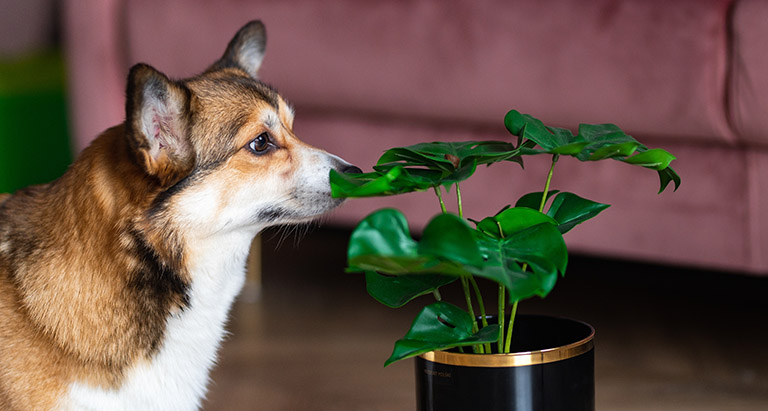Keeping our beloved pets safe and healthy is a top priority for every pet owner. However, many of us may not realize that some of the plants we cherish for their beauty can pose serious dangers to our furry friends. From common indoor houseplants to outdoor garden varieties, toxic plants can lead to severe health issues if ingested by pets. In this blog we’ll explore the common symptoms of plant poisoning in pets, identify toxic plants commonly found both indoors and outdoors, discuss immediate actions and veterinary care in case of ingestion, and provide preventative methods.
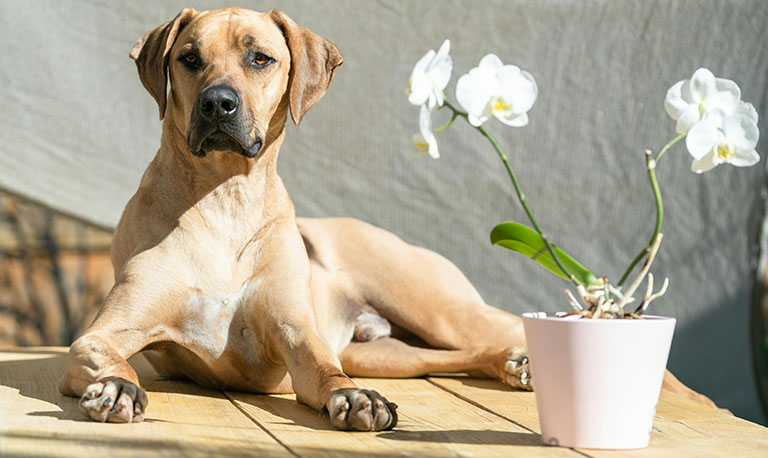
Common Symptoms of Plant Poisoning in Pets
Plant poisoning in pets can manifest through a range of symptoms, often depending on the type of plant ingested and the amount consumed. Recognizing these symptoms early can be crucial for timely intervention and treatment. Here’s a more detailed look at the common symptoms of plant poisoning in pets:
Gastrointestinal Issues
One of the earliest and most common signs of plant poisoning in pets is gastrointestinal distress. Symptoms typically include:
- Vomiting: Pets may repeatedly vomit, sometimes bringing up pieces of the ingested plant.
- Diarrhea: Loose, watery stools are a common response to toxic ingestion, indicating irritation in the gastrointestinal tract.
- Drooling and Excessive Salivation: Increased saliva production is a natural response to oral irritation caused by the plant’s toxins.
- Loss of Appetite: Pets may refuse to eat due to nausea or discomfort in their stomach.
Neurological Symptoms
Some plant toxins can affect the nervous system, leading to a variety of neurological symptoms:
- Lethargy: A poisoned pet might seem unusually tired or weak, showing little interest in normal activities.
- Tremors and Seizures: Severe poisoning can lead to involuntary shaking or convulsions, indicating serious nervous system involvement.
- Ataxia: Pets may display a loss of coordination, staggering or difficulty walking, often a sign of neurological impairment.
- Depression: Pets may become unusually withdrawn or unresponsive, reflecting an impact on their mental state.

Respiratory Problems
Ingesting certain toxic plants can lead to respiratory issues, which can be particularly alarming:
- Difficulty Breathing: Pets may exhibit rapid or labored breathing, coughing or wheezing, indicating that their respiratory tract is affected.
- Nasal Discharge: A runny nose or nasal congestion may also be observed if the respiratory system is irritated.
Cardiovascular Symptoms
Some plant toxins can have serious effects on the heart and circulatory system:
- Increased Heart Rate: An elevated heart rate can occur as the body responds to the toxic substance.
- Abnormal Heart Rhythms: Irregular heartbeats or palpitations may be detected, posing a risk to the pet’s overall cardiovascular health.
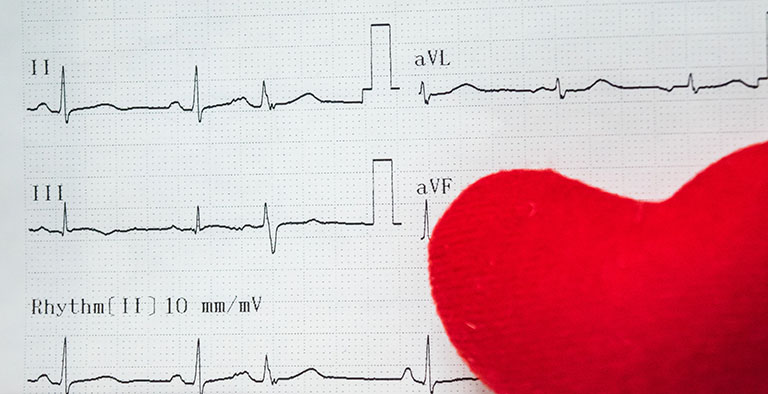
Skin and Mucous Membrane Irritation
Direct contact with toxic plants can cause visible irritation:
- Redness and Swelling: Pets may develop red, inflamed skin, especially around the mouth and paws.
- Blisters or Rashes: Some plants can cause more severe skin reactions, leading to blistering or rash development.
Behavioral Changes
In addition to physical symptoms, poisoned pets may exhibit noticeable changes in behavior:
- Restlessness or Agitation: Pets may become unusually restless, pacing or unable to settle down.
- Excessive Licking or Scratching: Pets may lick or scratch affected areas excessively, indicating irritation or discomfort.
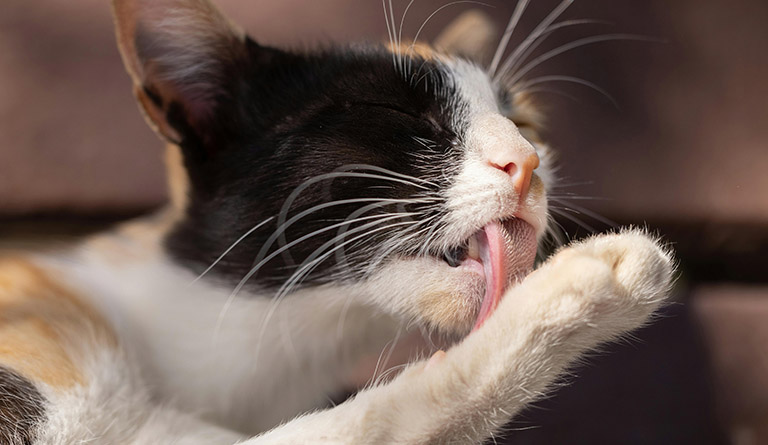
Common Poisonous Plants
Indoor Plants
Indoor plants can add beauty and tranquility to our homes, but many popular houseplants are toxic to pets and can pose serious health risks if ingested. Among the most common poisonous indoor plants is the peace lily which contains insoluble calcium oxalates that can cause severe irritation in a pet’s mouth, throat and stomach, leading to drooling, difficulty swallowing and vomiting. Philodendrons and pothos are known for their lush, green foliage and ease of care, and also contain calcium oxalates, resulting in similar gastrointestinal and oral distress.
Aloe vera, celebrated for its healing properties in humans, can cause vomiting, diarrhea and lethargy in pets due to its saponins and anthraquinones. The jade plant, a common succulent, can lead to vomiting, depression and incoordination if ingested by cats or dogs. Asparagus fern, a popular hanging pot plant, is toxic to pets due to the presence of sapogenin compounds called saponins. These compounds can cause gastrointestinal upset including vomiting and diarrhea if ingested by cats or dogs. Daffodils, with their striking yellow and white blooms, are poisonous to pets due to the presence of lycorine. Ingestion of any part of the plant can lead to severe symptoms including diarrhea, convulsions, vomiting, abdominal pain, convulsions and irregular heart rhythm in pets.
To read more about common poisonous indoor plants read here and here.
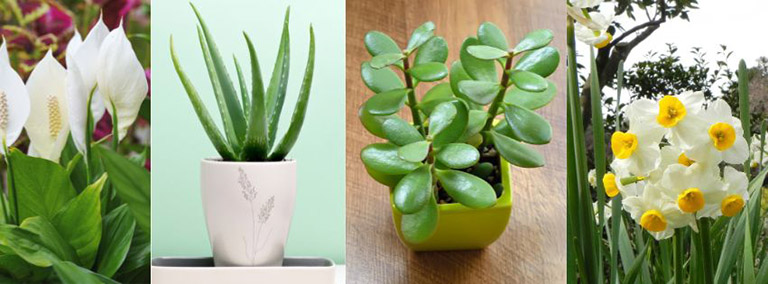
Outdoor and Garden Plants
Outdoor and garden plants can greatly enhance the aesthetic appeal of a yard, but many commonly found varieties are not safe for pets to ingest. Azaleas and rhododendrons contain grayanotoxins, which can cause vomiting, drooling, diarrhea and severe heart problems in pets. Oleander, admired for its beautiful flowers, is extremely toxic, with even small ingestions leading to deadly heart arrhythmias, vomiting and drooling. Sago palms, frequently used in landscaping, contain cycasin, a potent toxin that can cause liver failure, seizures and death, with the seeds being particularly dangerous.
Foxglove, with its striking tubular flowers, contains cardiac glycosides, which can lead to severe heart issues, vomiting and diarrhea. Autumn crocus are often planted for their attractive blooms but they contain colchicine, which can result in intense gastrointestinal distress, liver and kidney damage and respiratory failure. Yew plants, known for their dense, evergreen foliage, contain toxic alkaloids that can cause sudden death due to heart failure.
Explore information on toxic plants commonly encountered during hiking adventures here.
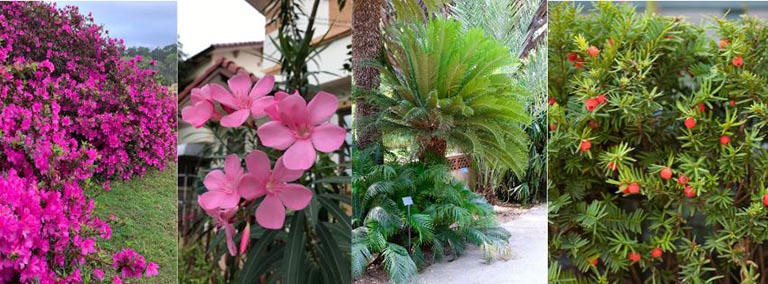
Immediate Actions and Veterinary Care
If you suspect your pet has ingested a poisonous plant, it’s important to act quickly. Follow these steps:
- Remove Access to the Plant: Ensure your pet cannot ingest any more of the plant material.
- Gather Information: Have information ready about the plant ingested, the amount consumed, your pet’s weight and any symptoms observed.
- Contact a Veterinarian: Seek veterinary care immediately, providing the gathered information.
- Monitor and Support: Keep a close eye on your pet’s condition and follow the veterinarian’s advice for supportive care and treatment.
By being vigilant and informed about the symptoms of plant poisoning, pet owners can ensure a prompt and effective response, significantly improving their pet’s chances of recovery and maintaining their health and safety. Staying calm and acting quickly are crucial in such emergencies. Panicking can delay critical actions, while maintaining composure allows for an effective response. Timely intervention can reduce toxin absorption and enhance the chances of successful treatment. Clear communication with veterinary professionals is essential and can make all the difference in ensuring your pet’s recovery and well-being.
Poison Control Hotlines for Pets
ASPCA Animal Poison Control Center
- Phone: (888) 426-4435
- Available 24/7
- Website
Pet Poison Helpline
- Phone: (855) 764-7661
- Available 24/7
- Website
Your Local Veterinarian
It’s always a good idea to have the contact information of your local veterinarian or an emergency veterinary clinic readily available. Many veterinary practices have after-hours emergency numbers.
Preventative Methods
Pet-Proofing Your Home and Garden Against Toxic Plants
Ensuring the safety of your pets involves proactive measures to pet-proof your home and garden against toxic plants. Position known toxic plants out of reach, using hanging planters or high shelves, to prevent curious pets from accessing them. Additionally, consider using deterrents like bitter sprays on plants to discourage chewing.
In your garden, create a pet-friendly landscape by selecting non-toxic plants and removing any existing dangerous species, such as oleander, sago palms and foxglove. Fencing off specific areas or using raised garden beds can also help keep pets away from potentially harmful plants. Regularly inspect your yard for new growths of toxic weeds or volunteer plants that may pose a risk.
Beyond plant selection and placement, educate all household members and visitors about the importance of keeping certain plants out of pets’ reach.
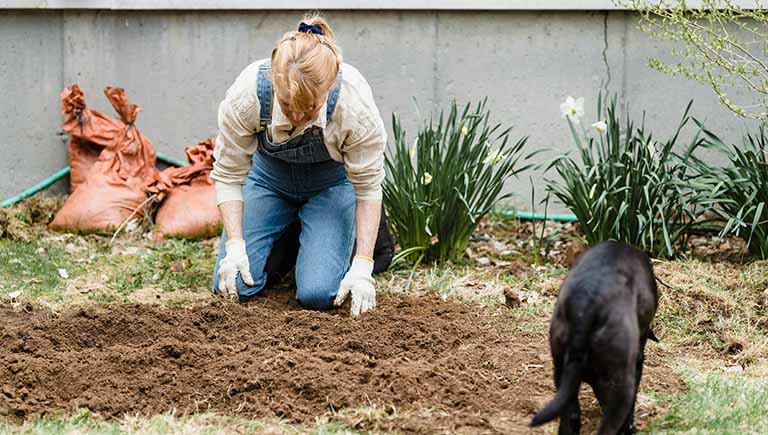
Enriching Your Pet’s Environment to Prevent Plant Chewing
Providing your pets with plenty of safe, engaging activities and toys can play a crucial role in diverting their attention away from chewing on plants. Interactive toys, puzzle feeders and chew toys designed specifically for pets can keep them mentally stimulated and physically active, reducing boredom and the likelihood of destructive behavior. Consider rotating toys regularly to keep your pets interested and engaged.
Incorporate daily play sessions and exercise into their routine to help fulfill their natural instincts and tire them out. This further reduces their inclination to explore and chew on plants out of boredom or curiosity. By offering a variety of stimulating activities and toys, you can redirect your pets’ energy in a positive direction and minimize the temptation to indulge in potentially harmful behaviors like chewing on toxic plants.
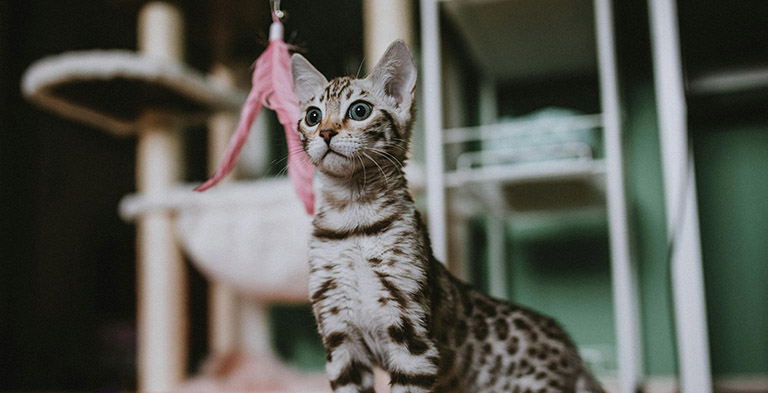
Proactive in Pet’s Health and Safety
As responsible pet owners, it’s our duty to create a safe environment for our pets to thrive in. By familiarizing ourselves with the common symptoms of plant poisoning and taking proactive measures, we can significantly reduce the risk of our cats or dogs ingesting toxic plants. Remember, staying calm and acting quickly in case of an emergency can make all the difference in ensuring your pets’ health and safety.
Discover more about items that could be harmful to your furry friend by checking out this blog and this blog.


